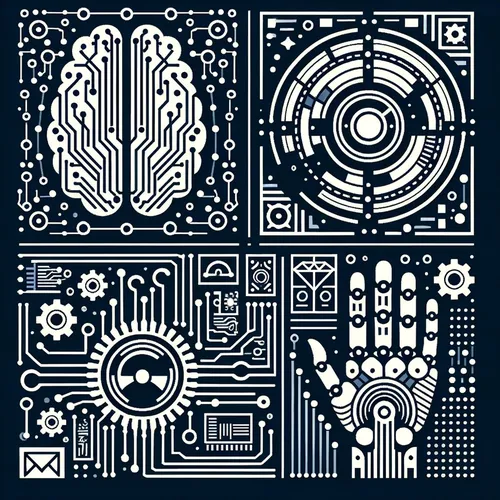AI & Robots: The Power Couple Taking Over! Juicy Details on Their Rise to Fame
- Author
- Quiet. Please
- Published
- Sat 10 May 2025
- Episode Link
- https://www.spreaker.com/episode/ai-robots-the-power-couple-taking-over-juicy-details-on-their-rise-to-fame--66026046
This is you Emerging Technology Trends: AI, Robotics & Digital Innovation podcast.
As the world moves toward May 11, 2025, the landscape of emerging technology is rapidly evolving, driven by breakthroughs in artificial intelligence, robotics, quantum computing, blockchain, and the Internet of Things. Artificial intelligence continues its transition from a workplace helper to an integral, autonomous partner across industries, enabling smarter decision-making and greater efficiency. Recent market data highlights this momentum: the artificial intelligence in robotics market is projected to soar from $17.89 billion in 2024 to $23.12 billion in 2025, with expectations to reach nearly $65 billion by 2029, reflecting a compound annual growth rate of over 29 percent. This explosive growth is fueled by the convergence of machine learning, cloud robotics, and the proliferation of autonomous systems across sectors like manufacturing, healthcare, logistics, and agriculture.
Key innovation trends for 2025 include the rise of humanoid robots capable of general-purpose tasks, although many manufacturers are focusing on robots that excel at specific roles, especially in automotive and warehousing environments. The development of analytical and generative artificial intelligence is empowering robots to adapt, self-train in simulated environments, and optimize operations for both speed and accuracy. Notably, initiatives like Rapid Robotics’ new generation of robotic arms using computer vision and generative artificial intelligence have achieved remarkable success in logistics and manufacturing, adapting to more complex and dynamic workflows than ever before.
Cross-industry collaboration continues to accelerate, with 75 percent of executives in advanced manufacturing now prioritizing artificial intelligence and digital innovation in research and development. Investment patterns reveal that businesses adopting these technologies are seeing productivity boosts of up to 50 percent, but they are also contending with regulatory and ethical challenges, especially concerning transparency, safety, and workforce transition. Governments and industry bodies are advocating for more robust policies to manage the social implications of automation, highlighted by forecasts that up to 20 million manufacturing jobs could be displaced by 2030.
Recent news underscores these trends, including significant funding rounds for quantum computing startups, advances in blockchain for supply chain security, and the deployment of autonomous robots for smart city infrastructure. To capitalize on these opportunities, organizations should prioritize integrating artificial intelligence with robotic process automation, invest in upskilling their workforce, and implement governance frameworks to ensure ethical and explainable technology adoption. Looking to the future, the fusion of intelligent automation, digital twins, and edge computing is set to redefine productivity, connectivity, and innovation worldwide, promising a new era of adaptable and resilient digital ecosystems.
For more http://www.quietplease.ai
Get the best deals https://amzn.to/3ODvOta
